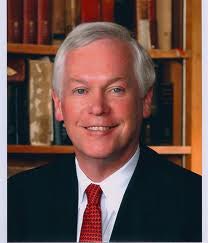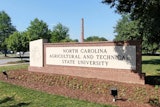 Brian Mitchell
Brian MitchellDespite the evolving interpretation offered by state and federal courts, American higher education as a community remains committed in its support to increase diversity among students.
At the same time, however, our colleges and universities largely fail to link diversity initiatives to specific workforce needs. This tendency often applies philosophically to all students enrolled, fueled in part by a belief that the responsibility for higher education institutions writ large is to educate broadly.
There are wonderful programs and support groups to promote and support diversity, of course, measured by gender, race, sexual preference, and socioeconomic income. The report of the Ford Foundation-funded Century Foundation released this week speaks compellingly to the role and problems facing American community colleges in these areas. It cites outstanding programs from the Jack Kent Cooke Foundation and the Edvance Foundation, where I serve as CEO and a director, to illustrate efforts under way that demonstrate fresh thinking.
Within industry, particularly in STEM disciplines, global corporate partners look to advance diversity through scholarships, internships, externships and other means to attract diverse employees freshly minted from colleges and universities in fields like engineering, the sciences, and new technologies.
What is missing, however, is the glue that holds these programs together. What may be most significant, indeed, is that programs to promote diversity and more practical efforts to increase graduates in areas like STEM- disciplines seek the same outcome—an educated citizenry even if in part for different reasons.
It is entirely possible that this evolution will occur naturally and that we are simply in mid-stream transitioning to a closer link between diversity and the needs of the American workforce in the 21st century. Even if so, however, American society must be prepared to link the philosophical with the practical, taking the skills of a liberal education and tying them explicitly to workforce needs as millions of jobs requiring a college degree will otherwise remain unfilled.
To do so, higher education leadership must take at least five immediate steps:
- Assess which relationships matter most among types of higher education institutions. Can two-year graduates form a pool of qualified candidates to provide a building block for prepared students who persist and graduate in a timely fashion? Should two-year graduates be seen more as the nucleus of a new building block and less like the filler used to complete a new admissions class?
- Ask what programs must be created at the secondary level, in two-year community colleges, and at the four-year level to identify, mentor, support and assess efforts to identify various types of diversity, link efforts to support diversity programs to institutional strategic needs, and identify support for diversity as a core institutional value that also supports a principle defining national higher education policy.
- Shape institutional growth through an informed assessment of workforce needs. If we can agree that a liberal arts education teaches students to write, articulate, apply quantitative methods, use technology, and work in a collaborative setting, then the fundamental underpinnings of a liberal arts degree remain solid. If we can link the same traits to identified workforce needs, we have the beginning of a lasting detente between liberal arts training and workforce preparation.
- Move tactical implementation more closely to workforce preparation by shifting administrative priorities to include and strengthen career centers, increased internships and externships, and broader efforts with industry seeking well-trained new employees. In this regard, sponsoring a college work fair is a good but insufficient effort likely to produce diminishing returns for graduating seniors.
- Work collaboratively with other higher education institutions to create efficiencies, economies of scale, and better press. It is entirely possible to imagine that collaborative groupings of institutions offering majors in areas like the STEM-disciplines can scale up collectively to attract the time and attention of global employers.
There are times in higher education when it seems like colleagues operating in good faith simply talk past one another. America will always need a qualified workforce with skills that do not require a college degree. And as recent literature suggests, there is room for debate on the perceived financial value of a four-year degree, especially from mediocre programs at under-resourced institutions. Yet these arguments do not take into account fully where we will head as a society.
For America to win the “race to the top,” the underlying goals must be more than about training qualified employees. We are better than that.
What is needed most is awareness that for America to be America we must preserve higher education as our best and most effective vehicle to upward mobility, an improved quality of life, and an educated workforce. The next Bill Gates is likely to come from a diverse background. This country must be prepared to provide the access, support, and professional opportunity to welcome employed college graduates who took the chance society gave them regardless of where they started.
We can win the race to the top. But, we ought to also know why we trained so hard for the win.
Dr. Brian C. Mitchell is the president of Brian Mitchell Associates and a director of the Edvance Foundation. Dr. Mitchell is the retired president of Bucknell University and former president of Washington & Jefferson College. Dr. Brian C. Mitchell chaired the Rhodes Scholar Section Committee for Pennsylvania and was chair of the Patriot League (Division I), the President Athletic Conference (Division III), and is the immediate past chair of the board at Merrimack College.















